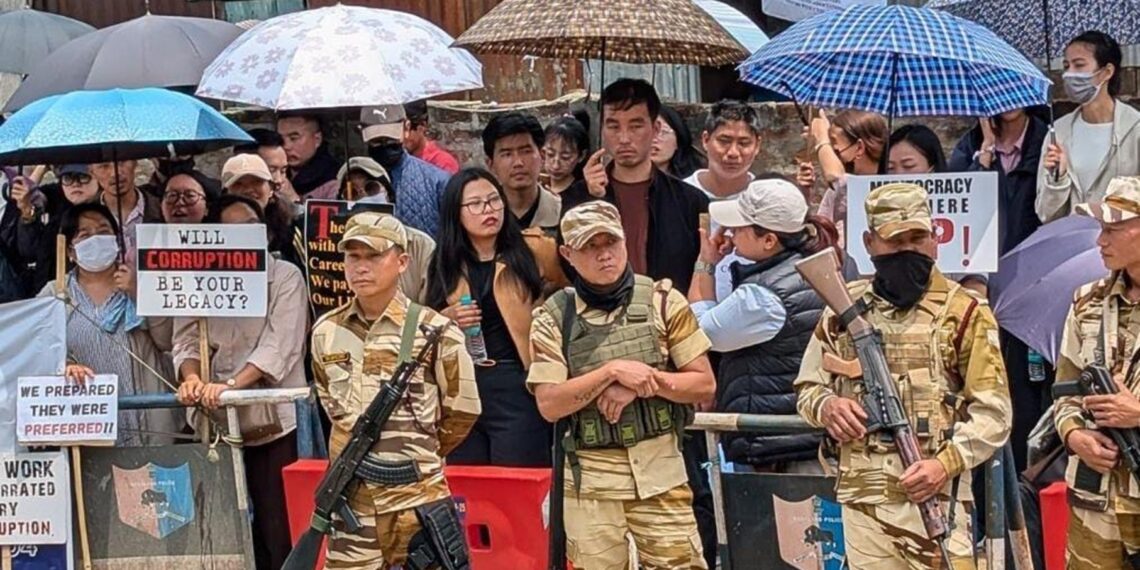Kohima: In a sharp escalation of the ongoing row over Nagaland’s reservation policy, the Five-Tribes Committee on Review of Reservation Policy (CORRP) announced on Saturday that it will withdraw from all state government events — including the Independence Day celebrations — in protest against the composition of the commission tasked with reviewing the policy.
The decision followed a three-hour closed-door meeting in Kohima between CORRP and the apex bodies of the Angami, Ao, Lotha, Rengma and Sema tribes.
Speaking to reporters afterwards, CORRP convener Tesinlo Semy said the committee welcomed the government’s decision to initiate a review but could not support a panel that included civil society organisations (CSOs).
“The inclusion of CSOs compromises independence and impartiality,” Semy argued, adding that only serving or retired government officials should make up the commission to ensure an unbiased process.
CORRP member secretary G.K. Zhimoni clarified that the committee had never demanded the formation of a review panel in the first place.
It was, he said, the result of a June 3 meeting with the state government led by Deputy Chief Minister Y. Patton.
“The commission must be truly independent,” Zhimoni said. “Allowing CSOs to be part of a decision-making body meant to objectively assess the reservation policy undermines fairness.”
He also pushed back against a minister’s recent claim that the five advanced tribes hold 64% of government jobs while more than ten backward tribes account for just 34%.
Calling the figures “wildly imaginary,” Zhimoni said CORRP had its own data that would be made public “at the right time.”
On whether the committee planned to engage in dialogue with tribes benefiting from the backward quota, Zhimoni said that responsibility lay with the government-appointed commission.
He warned that if the state tried to tie implementation of the commission’s findings to the national census, CORRP would demand suspension of the existing policy until then.
“This is not a boycott, but a conscious decision of non-participation,” he stressed.
ALSO READ: Tripura Speaker Biswa Bandhu Sen suffers brain stroke
The dispute has been simmering for months. The five apex tribal bodies, under CORRP, submitted a joint memorandum to the state government arguing that the reservation policy — in place since 1977 — no longer reflects Nagaland’s current socio-economic and educational realities.
Demonstrations were staged in multiple districts on May 29 and July 9.
When first implemented, the policy provided 25% reservation in non-technical and non-gazetted posts for seven tribes considered “backward” due to limited representation in state services and socio-economic disadvantages.
Over the years, the quota was increased to 37%, with 25% earmarked for seven Eastern Nagaland tribes and 12% for four other backward tribes.















